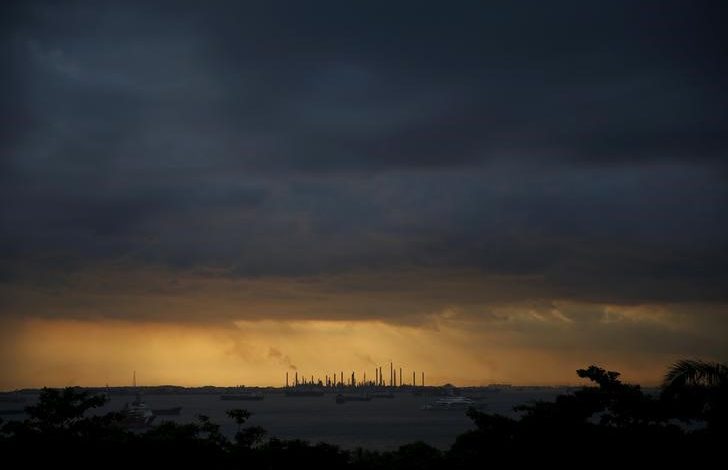
Oil Drops for Fourth Consecutive Session Amid US Inflation Concerns, Reports Reuters
By Shariq Khan
NEW YORK – Oil prices experienced a decline for the fourth consecutive session on Thursday, hitting multi-month lows due to concerns about demand growth in the world’s largest oil market, amid expectations of prolonged higher U.S. interest rates.
Brent crude futures fell by 54 cents, or 0.7%, settling at $81.36 a barrel, marking the lowest price since January. Meanwhile, U.S. West Texas Intermediate (WTI) crude futures decreased by 70 cents, or 0.9%, ending at $76.87 a barrel, a three-month low.
Data from S&P Global indicated a rise in U.S. business activity this month; however, manufacturers reported an increase in input prices, hinting at a potential uptick in goods inflation in the forthcoming months.
Minutes from the latest U.S. Federal Reserve policy meeting revealed that policymakers remain uncertain whether current interest rates are sufficiently high to control persistent inflation. Elevated interest rates can lead to higher borrowing costs, which tend to slow down economic activity and reduce oil demand.
Additionally, the U.S. Energy Information Administration reported an increase in oil stocks by 1.8 million barrels last week, contrary to an expected drawdown of 2.5 million barrels.
On a positive note, the EIA reported that U.S. gasoline demand reached its highest level since November, providing some support for energy markets ahead of the Memorial Day holiday weekend, traditionally seen as the commencement of the U.S. summer driving season. U.S. gasoline consumption constitutes about 9% of global oil demand.
“It was a pretty good report for gasoline; everything generally trended positive,” commented Mizuho analyst Bob Yawger. “However, one report does not indicate a trend, so all eyes will be on whether this performance can be sustained moving forward.”
Investors are also anticipating the upcoming June 1 meeting of the Organization of Petroleum Exporting Countries and its allies, collectively known as OPEC+, where output policy will be discussed.
Russia announced it had surpassed its OPEC+ production quota in April for "technical reasons" and will soon submit a plan to the OPEC Secretariat to address this oversight, as stated by the Russian Energy Ministry on Wednesday.
The recent downturn in crude oil prices increases the likelihood that OPEC+ will maintain existing production restrictions at least until the end of September, according to Andrew Lipow, president of Lipow Oil Associates based in Houston.
 GOOGL
GOOGL  META
META 


